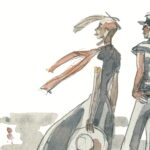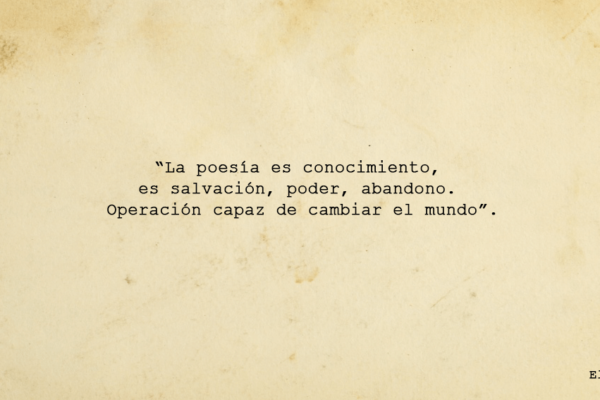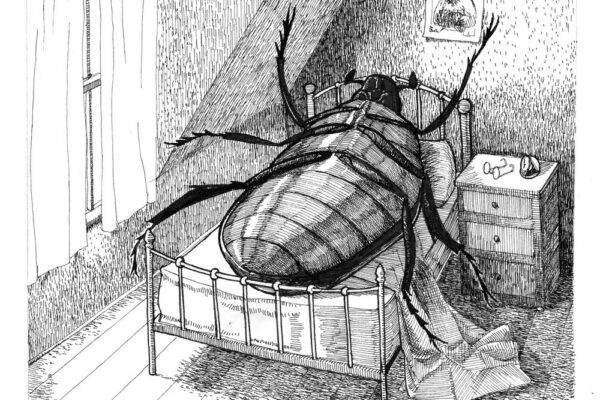Translation of verse 59 to verse 73 of William Shakespeare’s Troilus and Cressida
Introduction
It is widely acknowledged that William Shakespeare has been one of the greatest poet and writer of all times. Translating a Shakespearean text is a daunting and laborious task given the nature of the text and the linguistic and intercultural connotations involved.
When translating from one language into another, the translator needs to change the source text (ST) in the source language (SL), into the target text (TT) in the target language (TL). For this process to be successful, a certain criteria that encompasses accuracy, cohesion and coherence, choice of vocabulary and register, needs to be met. According to Jeremy Munday, in his Introducing Translation Studies. Theories and Applications, (2012 Routledge, London/NewYork) accuracy means faithfulness to the source text and to the author’s meaning; whereas, appropriate choice of vocabulary suggests a more target language approach.
As a consequence, the translator embarks into a difficult task.
Indeed, the elements of the source language are transferred and restructured semantically and stylistically into the target text as we can perceive in the translation of the Shakespearean text Troilus and Cressida. In my opinion, a translator becomes like a poet or a novelist; actually, the translator is the hidden artist of a text. For this reason, he or she cannot be compared to a machine translation system. Besides, a translated text gives a sense of achievement and can enhance communicative abilities.
Translation of Act IV, Scene IV, from verse 59 to verse 73 (page 180)
Troilus and Cressida is a Shakespearean drama, and for the translation a word-for-word approach should be adopted instead of a sense-for-sense method. The latter is mainly used when translating novels, where the meaning of the word needs to be translated within its context and within target language requirements, such as inter-text references. Translating word-for-word means literal translation or direct translation that is a type of translation that adheres closely to the surface structures of the source text message, both in terms of semantics and of syntax.
Given that the Troilus and Cressida is a drama and purposefully produced for the stage, approximately the same number of words per verse in the source text should be kept in the translated text. What follows is the translation of Act IV, Scene IV, from verse 59 to verse 73, page 180, according to the principles discussed above:
TROILUS TROILO
Nay, we must use expostulation kindly, Non solo, dobbiamo fare rimostranza gentilmente
For it is parting from us. 60 Poiché dovremmo pur separarci.
I speak not ‘Be thou true’ as fearing thee, Io non dico “Sii fedele”
For I will throw my glove to Death himself Perché debba gettare il guanto alla Morte stessa
That there’s no maculation in thy heart; Per dimostrare che non ci sia maculatura nel tuo cuore;
But ‘Be thou true’, say I, to fashion in Ma “Sii fedele”, ti dico, per far si che
My sequent protestation: Be thou true, 65 La mia affermazione sia solenne: And I will see thee. Sii fedele, Ed io ti rivedrò.
CRESSIDA CRESSIDA
O, you shall be exposed, my lord, Oh, ti esporrai, mio signore, to dangers ai pericoli
As infinite as imminent! Infiniti quanto immediati!Ma io sarò But I’ll be true. Ma io sarò fedele.
TROILUS TROILO
And I’ll grow friend with danger. . Diventerò amico del pericolo. Wear this sleeve. Indossa questo bracciale.
CRESSIDA [as they exchange favours] CRESSIDA [mentre si scambiano i doni]
And you this glove. 70 E a te questo guanto. Quando potrò When shall I see you? Quando potrò rivederti?
TROILUS TROILO
I will corrupt the Grecian sentinels, Corromperò le sentinelle greche,
To give thee nightly visitation. Per farti una visita notturna.
But yet, be true. Però, sii fedele.
The above wonderful scene I chose to translate depicts the moment when Troilus bids Cressida farewell, and hands her over to the Greeks; it is a speech in blank verse without rhymes.
Troilus is the son of Priam,
King of Troy and his beloved Cressida is the daughter of Calchas, a Trojan priest, a defector to the Greeks. The Troilus and Cressida drama is a private love story fit into a wider political context, the Trojan War, part of the Greek mythology. In Act I, Scene I, Troilus reveals to Pandarus, Cressida’s uncle, that he is madly in love with her “I tell thee I am mad in Cressid’s love”. Troilus describes Cressida as “stubborn-chaste against all suit”, indeed Cressida is well aware of her chastity and is willing to play upon it. She is intelligent, wise, knows well how to use her ‘tongue’. Cressida is seductive and just with a blink of her eye can seduce a multitude of men, and Troilus is aware of this. In Scene V, we have a proof of this, as Cressida is willing to kiss Agamemnon, Nestor, Achilles, Patroclus, Menelaus, and Ulysses. Even though Cressida has got certain moral principles, she is faced with the fate of interacting in a manly world.
Troilus uses an elevated vocabulary; his words are poetry. For example, lofty and high-sounding are the four words which come from Latin, expostulation, maculation,protestation, andvisitation. Such long Latinising words are charged with prestige and contribute to an elevated style of speech. In this respect, Professor Nadia Fusini, acclaimed Italian scholar on Shakespearean studies, underlines that such Latinate words have been carefully researched upon by Shakespeare, and that ‘they pertain to an intellectual elite who was learning the art of rhetoric in the great schools of the Kingdom’. Expostulation, from Latin expostulatus, means rimostranza, lagnanza, protesta in Italian. I went for the longer wording, thus choosing rimostranzafor the Italian text. Whereas, for the term maculation, from Latin maculationem(nominative maculatio), I opted for maculaturain the target language. However, according to LEME, the Lexicons of Early Modern English, of the University of Toronto, in 1623 the word maculation meant as well infamieor reproch, disonoreo infamiain Italian. As far as the word protestation is concerned, from Latin protestationem(nominative protestatio), I chose affermazione in Italian; while the word visitation, from Latin visitationem (nominative visitatio), has been translated into visita. The above choices have been made to ensure that the elevated vocabulary used by Troilus is maintained in the translated text. In addition the meaning of such words has been looked for in LEME, the Lexicons of Early Modern English, of the University of Toronto.
Other peculiarities worth of noting are
for instance, the use of the adverb Nay, which we find at the beginning of Verse 59. Nay pertains to the Middle English phase, and is, therefore, an archaic word which means denial or refusal. It derives from the Old Norse ne=not ei=ever = nei. According to Merriam Webster Dictionary, the first known use of nay dates back to the 13thcentury. Instead of translating nay with no, I opted for not only; it is as if Troilus is saying to Cressida ‘not only you have to be true of heart but also (or but rather) you have to complaint or object gently’. Also, in LEME, we find the meaning of nay in John Florio’s A World of Words (1598), as: but rather, yea butor nay rather. This means we could perhaps translate nay with piuttosto.
Secondly, we notice a strong use of modal verbs in these verses: will and shall. However, for Shakespeare such verbs are close to their semantic roots and express willingness or a strong will in doing something: And I will throw my glove to Death himself; And I will see thee; I’ll be true; When shall I see you?.
Intercultural references
Another particular feature we notice in the translation of Troilus and Cressida is the importance given to intercultural references. Umberto Eco, in his renowned book Dire Quasi La Stessa Cosa, invites the translators of his texts to disregard the literal meaning of certain parts of his original texts in order to preserve the deep meaning of the text itself when translated. Indeed, to be faithful to the deep meaning of the original text, Eco suggests a sense-for-sense translation approach. He goes even further than that by saying that a translator can change the textual reference in the original text so that the translated text maintains the sense of the original text. However, Eco also argues that when translating famous texts like Hamlet, the text cannot be changed to explain a pun or a play upon words. The world-renowned phrase to be or not to be must be translated word-for-word and the translator should not dare to deviate its meaning. For example, when Troilus says Wear this sleeve, as pointed out by Professor Iolanda Plescia, of Sapienza Università di Roma, in her notes of the Italian translation of Troilus and Cressida, the word sleev ehas been translated bracciale in Italian. Domestication has occurred here. The sleeve, a token of Troilus’ love for Cressida, refers to the piece of cloth, richly embroidered, with silver and gold sequins, which used to be attached at the end of a sleeve in men or women’s dresses.
Indeed, in Elizabethan England, clothing had a recognized worth, and people at the Queen’s court used such items of dress to settle their debts. We should note as well that Cressida gives Troilus her glove as a token of her love for him And you this glove. Even gloves were considered a piece of precious ornament in Renaissance fashion and were highly elaborated as we can see in the pictures below taken from the web site of the Victoria and Albert Museum(London):

After exchanging gifts, Troilus’ long speech ends with But, yet be true translated in Italian Però, sii fedele. In these last four words, his tone sums up his own wish for Cressida to remain faithful to him.
Conclusions
In the light of what has been discussed above, the translator cannot be compared to an automated translation system; on the contrary his work should be recognized and valued given the broad spectrum of areas covered when analyzing a text, for instance the speech, the sound, the style, not to mention cohesion and coherence with the original text. The translator carries out a thorough and meticoulous research in order to produce a translated text which is faithful to the original; it is challenging to produce the same culture specific effects on the target reader as on the readers of the source text.
However, as a rule of thumb, Umberto Eco suggests to adopt the word-for-word approach when translating famous texts like Shakespearean dramas, in order not to deviate from the original meaning; whereas, as far as novels are concerned, the ideal approch would be the sense-for-sense or meaning-for-meaning translation. In his article The Task of the Translator in the European Renaissance: Explorations in a Discursive Field, Theo Hermans, Professor of Dutch and Comparative Literature at University College London (UCL), values different approaches to translation across the centuries and says that “the word for word translator should ideally be able to present the reader with a painstakingly accurate, unaltered, unadulterated copy of the original, an exact double.” With such a ‘literalism approach’ the translator becomes transparent and the reader trusts the translator fully. However, this approach is not always recommended. A lot depends on what type of text needs to be translated.
Written by Liliana Pierbattista
Gli articoli di traduzione relativi a Troilus and Cressida provengono da riflessioni degli studenti della professoressa Plescia, la quale ha trattato il dramma e le varie proposte traduttive durante le sue lezioni.
Bibliography
- Shakespeare, William. 2015. Troilo e Cressida. Traduzione dall’inglese di Iolanda Plescia. Milano. Universale Economica Feltrinelli.
- Munday, Jeremy. 2012. Introducing Translation Studies. Theories and Applications. 3rdedition, London/New York. Routledge.
- Eco, Umberto. 2013. Dire quasi la stessa cosa. Esperienze di traduzione. Milano. Bompiani.
- Hermans, Theo. 2016. The Task of the Translator in the European Renaissance: Explorations in a Discursive Field. Article.
- Zanichelli. 2012. Il Ragazzini. Dizionario Inglese-Italiano di Giuseppe Ragazzini. Bologna. Zanichelli Editore.
- http://leme.library.utoronto.ca/
- http://www.etymonline.com/index.php?term=expostulate
- http://dizionario.internazionale.it/parola/maculatura
- http://collections.vam.ac.uk/item/O77704/pair-of-gloves-unknown/
- http://dizionario.internazionale.it/
- http://www.treccani.it/sinonimi/









